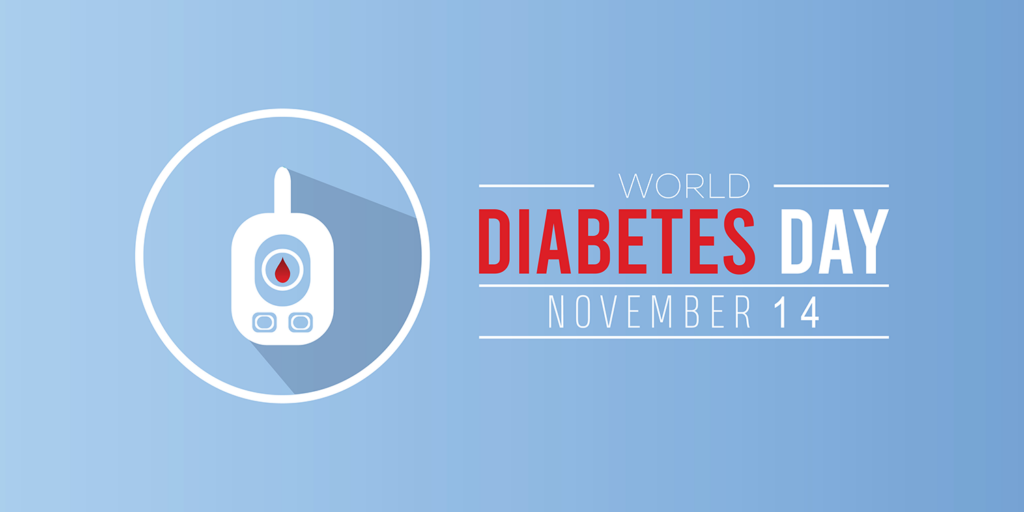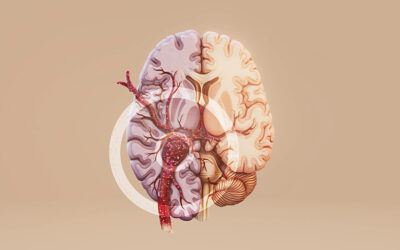World Diabetes Day 2025: Envisioning a Diabetes-Free World

Affecting millions of people across all age groups and communities, diabetes is unarguably one of the most pressing health challenges in the 21st century. According to a 2024 study by the International Diabetes Federation (IDF), about 589 million adults globally are living with diabetes – a number that’s projected to rise to 853 million by 2050. In India, the burden is no less alarming – the country accounts for close to 90 million of the 107 million diabetes cases in South-East Asia, making it the country with the highest number of people living with diabetes in the region.
To help address this silent epidemic, World Diabetes Day is observed every year on the 14th of November, with an aim to increase awareness about diabetes, promote timely diagnosis, and encourage preventive measures.
More on the subject, in this article, we will explore the history of World Diabetes Day, the theme for 2025, and other finer lines of diabetes everyone should know. Let’s dive in.
Table of Contents
ToggleWorld Diabetes Day 2025: History, Significance, and Theme
World Diabetes Day (WDD) was first established in 1991 by the International Diabetes Federation (IDF) and the World Health Organization (WHO) in response to the growing global concern about diabetes and its health impact. It later gained recognition as an official United Nations health day in 2006, symbolising a united global commitment to raise awareness, improve access to care, and support research and prevention efforts.
Observed on 14th November, the day also marks the birthday of Sir Frederick Banting, one of the scientists who discovered insulin in 1921 – a medical breakthrough that transformed diabetes from a fatal illness into a manageable condition.
The Theme for World Diabetes Day 2025
Each year, World Diabetes Day focuses on a specific theme to highlight a key aspect of diabetes prevention and care. The theme for World Diabetes Day 2025 is “Diabetes and Well-being,” with a special focus on promoting healthy workplaces and balanced lifestyles. The theme emphasises that managing diabetes is not limited to medication alone but extends to supporting mental health, reducing stress, and creating environments where people can lead healthier, more active lives.
This global campaign serves as a reminder that through awareness, timely screening, and community-driven initiatives, millions of people can prevent or better manage diabetes, ensuring improved well-being for themselves and those around them.
What Is Diabetes?
Diabetes is a long-term metabolic condition in which the body is unable to properly regulate blood sugar (glucose) levels. Glucose serves as the body’s primary source of energy, and its utilisation by cells is regulated by insulin, a hormone produced by the pancreas. When the body either does not produce enough insulin or cannot use it effectively, glucose builds up in the bloodstream instead of being converted into energy for the cells.
Over time, high blood sugar levels can affect vital organs such as the heart, kidneys, eyes, and nerves. That said, diabetes does not develop overnight – it is often the result of a combination of genetic, lifestyle, and environmental factors. The good news is, the condition can be effectively managed with regular monitoring, timely treatment, and healthy daily habits.
Types of Diabetes
Diabetes is not a single condition but a group of disorders that affect how the body manages blood sugar. Common types include:
Type 1 Diabetes
An autoimmune condition where the body’s immune system attacks the insulin-producing cells in the pancreas. It usually develops in childhood or adolescence but can occur at any age. People with Type 1 diabetes need daily insulin to maintain normal blood sugar levels.
Type 2 Diabetes
The most common form of diabetes, often linked to lifestyle factors such as poor diet, physical inactivity, and obesity. In this type, the body becomes resistant to insulin or does not produce enough of it. Early detection and lifestyle changes can help control or even delay its progression.
Gestational Diabetes
A temporary form of diabetes that occurs during pregnancy due to hormonal changes that affect insulin function. While it usually resolves after childbirth, it increases the risk of developing Type 2 diabetes later in life.
Prediabetes and Other Rare Forms
Prediabetes refers to blood sugar levels that are higher than normal but not yet high enough to be classified as diabetes. If left unchecked, it can progress to Type 2 diabetes. Other rare forms, such as Maturity Onset Diabetes of the Young (MODY) or Latent Autoimmune Diabetes in Adults (LADA), are caused by specific genetic or immune factors.
Warning Signs and Symptoms of Diabetes
Diabetes often develops gradually, and in many cases, early symptoms may go unnoticed. But when blood sugar levels remain high for a prolonged period, the body begins to show certain physical and functional changes. Common symptoms of diabetes include:
- Frequent urination: When blood sugar levels are high, the kidneys work harder to remove the excess glucose from the blood. This leads to increased urine production, causing a person to urinate more often, especially at night.
- Excessive thirst and dry mouth: Frequent urination causes the body to lose more fluids, which can lead to dehydration. As a result, individuals may feel unusually thirsty and experience a persistent dry mouth.
- Unexplained weight loss: Even though a person may be eating normally, the body is unable to use glucose effectively for energy. To compensate, it begins breaking down fat and muscle, leading to sudden or unintentional weight loss.
- Constant fatigue: When glucose does not enter the cells properly, the body’s energy supply drops. This can cause persistent tiredness, lack of stamina, and difficulty concentrating.
- Blurred vision: Fluctuations in blood sugar can cause the lens of the eye to swell, affecting its ability to focus. This can result in temporary blurred or hazy vision.
- Slow-healing wounds or recurrent infections: High blood sugar levels can impair circulation and weaken the immune system. This slows down the body’s natural healing process and makes infections, especially skin, gum, and urinary infections, more common.
- Numbness or tingling in hands and feet: Prolonged high blood sugar can damage nerves, particularly in the extremities. This may cause a tingling sensation, numbness, or burning pain in the hands and feet, a condition known as diabetic neuropathy.
Anyone experiencing persistent or multiple symptoms should seek medical evaluation at the earliest. Early diagnosis can help prevent complications and support long-term health and well-being.
Common Causes and Risk Factors
Diabetes develops due to a combination of genetic, environmental, and lifestyle factors that affect how the body produces or utilises insulin. While some causes are beyond control, such as family history or age, several modifiable factors significantly increase the risk, especially in rapidly urbanising regions like India.
Read More: How Urbanization is Driving the Rise in Diabetes Cases in India
Major causes and risk factors include:
- Genetic predisposition: A family history of diabetes increases the likelihood of developing the condition.
- Unhealthy eating habits: Diets high in refined carbohydrates, saturated fats, and sugary foods can raise blood sugar levels.
- Sedentary lifestyle: Lack of regular physical activity leads to weight gain and reduced insulin sensitivity.
- Obesity and abdominal fat: Excess fat, particularly around the waist, is a major risk factor for Type 2 diabetes.
- Stress and poor sleep patterns: Chronic stress and irregular sleep affect hormone balance and blood sugar control.
- Hormonal changes during pregnancy: Can lead to gestational diabetes, increasing future risk for both mother and child.
- Advancing age: The risk of Type 2 diabetes increases after the age of 40, especially with reduced activity and metabolic changes.
Impact of Diabetes on Everyday Health and Well-Being
Living with diabetes affects more than just blood sugar levels. If left unmanaged, it can gradually influence multiple organs and interfere with daily routines, mental health, and overall quality of life. The condition demands continuous self-care, monitoring, and lifestyle adjustments to maintain stability and prevent complications. The most common impacts of diabetes on health and well-being include:
Effects on Physical Health
Persistently high blood sugar can lead to long-term complications such as heart disease, kidney problems, nerve damage (neuropathy), and eye disorders (retinopathy). It can also delay wound healing and increase the risk of infections, especially in the feet and skin.
Impact on Emotional and Mental Health
Constant monitoring, dietary restrictions, and concerns about long-term health can lead to stress, anxiety, or diabetes-related fatigue. Emotional support and mental health counselling play an important role in helping individuals cope better and stay motivated.
Challenges in Daily Life
Diabetes can make everyday routines more demanding. Regular monitoring, structured meal timings, and strict medication schedules can sometimes disrupt work, travel, and social activities. Fluctuating blood sugar levels may also affect energy levels, mood, and concentration, making it harder to maintain consistency in daily tasks.
At its core, diabetes management is not just about controlling blood sugar, it is about maintaining balance in every aspect of health and well-being.
Diagnosis of Diabetes
Early diagnosis of diabetes plays a crucial role in preventing long-term complications and ensuring timely management. Doctors use a combination of blood tests to measure glucose levels and assess how effectively the body is producing or utilising insulin.
Common diagnostic tests include:
- Fasting Blood Sugar (FBS): Measures blood glucose after an overnight fast. A level of 126 mg/dL or higher indicates diabetes.
- Post-Prandial Blood Sugar (PPBS): Conducted two hours after a meal to check how the body manages sugar intake.
- HbA1c Test: Reflects the average blood sugar levels over the past two to three months and helps monitor long-term control.
- Oral Glucose Tolerance Test (OGTT): Involves drinking a glucose solution followed by periodic blood tests to assess how efficiently glucose is processed.
- Random Blood Sugar (RBS): Can be done at any time of the day; high values may suggest diabetes, warranting further tests.
Treatment Options for Diabetes
The goal of diabetes treatment is to maintain blood sugar levels within a healthy range while preventing complications and supporting overall well-being. Treatment plans are highly individualised, depending on the type of diabetes, age, lifestyle, and other health conditions. The most common treatment options include:
1. Medication and Insulin Therapy
People with Type 1 diabetes require lifelong insulin therapy, as their bodies no longer produce insulin naturally. Those with Type 2 diabetes may be prescribed oral medications that help the body use insulin more effectively. In some cases, insulin may also be recommended when blood sugar remains uncontrolled through tablets alone.
2. Lifestyle Management
Diet and exercise form the foundation of diabetes care. A balanced diet rich in dietary fibre, whole grains, and fresh fruits and vegetables helps stabilise glucose levels. Regular physical activity, such as walking, yoga, or light aerobic exercise, improves insulin sensitivity and promotes heart health.
3. Blood Sugar Monitoring
Continuous or regular glucose monitoring allows patients and doctors to adjust medications and dietary plans effectively. Self-monitoring devices or advanced Continuous Glucose Monitoring (CGM) systems are used to track changes in real time.
4. Education and Counselling
Patient education is vital for long-term success. Understanding how food, medication, and lifestyle choices affect blood sugar empowers individuals to take control of their health. Counselling also helps in managing stress and maintaining emotional balance.
How to Prevent Diabetes?
While certain risk factors such as age and genetics cannot be changed, many cases of Type 2 diabetes can be delayed or prevented through simple, sustainable lifestyle choices. Prevention begins with awareness – understanding how daily habits influence blood sugar and overall health. Key steps to prevent diabetes include:
- Eat a balanced diet: Choose whole grains, fresh fruits, vegetables, legumes, and foods high in dietary fibre. Limit sugary beverages, processed snacks, and refined carbohydrates.
- Stay physically active: Aim for at least 30 minutes of moderate exercise most days of the week. Activities such as brisk walking, cycling, or yoga help improve insulin sensitivity.
- Maintain a healthy weight: Even a small reduction in body weight can significantly lower the risk of developing Type 2 diabetes.
- Manage stress and sleep: Chronic stress and inadequate sleep affect hormone balance and blood sugar control. Regular relaxation techniques, meditation, and proper rest are essential.
- Avoid tobacco and limit alcohol: Both can worsen insulin resistance and increase the risk of heart complications associated with diabetes.
- Go for regular health check-ups: Routine screenings, especially for those with family history or obesity, ensure early detection and timely intervention.
Small, consistent changes in daily habits can make a major difference. By adopting healthier routines, individuals can not only prevent diabetes but also enhance overall well-being and energy levels.
When to See a Doctor for Diabetes
Recognising when to seek medical attention is crucial for preventing complications and ensuring effective diabetes management. Many people may overlook mild or early symptoms, allowing blood sugar levels to remain uncontrolled for long periods. Consult an endocrinologist in the following cases:
- Persistent thirst, frequent urination, or unexplained fatigue
- Sudden weight loss or gain without clear reason
- Blurred vision or tingling in hands and feet
- Non-healing wounds or recurrent infections
- Family history of diabetes combined with unhealthy lifestyle habits
Even in the absence of symptoms, individuals over 35 or those who are overweight should undergo routine blood sugar screening. Early detection helps start treatment at the right time, preventing kidney, heart, and nerve-related complications later in life.
Why Choose Graphic Era Hospital for Diabetes Care
At Graphic Era Hospital, Dehradun, we believe diabetes care goes far beyond simply controlling blood sugar levels — it’s about supporting every aspect of health and well-being. With a combination of advanced medical technology, specialised expertise, and a patient-centric approach, we provide comprehensive, personalised care for all types of diabetes to help individuals lead healthier, more fulfilling lives. We provide:
Experienced Endocrinologists and Diabetes Specialists
Our team of skilled endocrinologists and diabetologists has extensive experience in diagnosing and treating Type 1, Type 2, and gestational diabetes, as well as related metabolic disorders. Each patient receives a personalised treatment plan tailored to their health goals and medical needs.
Advanced Diagnostic and Monitoring Technology
The hospital is equipped with modern diagnostic facilities, including HbA1c testing, Continuous Glucose Monitoring (CGM), and automated laboratory systems for accurate and timely results. These technologies enable precise evaluation and long-term management of blood sugar control.
Comprehensive and Individualised Diabetes Management
Care at Graphic Era Hospital extends beyond prescriptions. Patients receive nutrition guidance for diabetes, physical activity recommendations, medication reviews, and counselling to support both physical and emotional health.
Patient-Centred Care and Long-Term Support
From education on self-monitoring and diet planning to regular follow-ups, the hospital ensures each patient feels supported throughout their journey. The focus remains on maintaining stability, preventing complications, and empowering individuals to live healthier, fuller lives.
How You Can Contribute on World Diabetes Day 2025
World Diabetes Day is not only about awareness – it is about collective action. Small efforts from individuals, families, and communities can create a meaningful difference in promoting healthier lifestyles and preventing diabetes-related complications. Here’s are some meaningful ways individuals can contribute to World Diabetes Day:
- Get screened and encourage others: Participate in free blood sugar testing camps near you or hospital-organised screening drives.
- Promote healthy habits at work and home: Encourage colleagues and family members to take short activity breaks, eat balanced meals, and manage stress effectively.
- Share accurate information on social media: Use social media to spread verified facts about diabetes, debunk myths, and inspire others to take proactive steps.
- Support those living with diabetes: Offer understanding, motivation, and help them stay consistent with their diet, medication, and follow-ups.
- Join local awareness events: Attend diabetes awareness programmes in your area or virtual sessions that promote preventive care and lifestyle education. Many Indian cities also host marathons, walkathons, or yoga camps on World Diabetes Day to promote healthy living – joining these can inspire others too.
Each action, no matter how small, contributes to building a more aware and health-conscious community. Together, these efforts bring society closer to a future where diabetes can be prevented, detected early, and effectively managed.
Let’s Build a Diabetes-Free World Together
Diabetes is a growing health challenge, but its impact can be reduced through awareness, early diagnosis, timely treatment, and collective action. By making healthier choices, supporting community initiatives, and encouraging regular screening, every individual can play a role in shaping a healthier future.
At Graphic Era Hospital, Dehradun, we are committed to providing comprehensive diabetes care, combining advanced medical expertise with a patient-centred approach to help individuals manage the condition effectively and prevent complications.
To consult a diabetes specialist or book a screening, call 1800-889-7351 today.
Frequently Asked Questions (FAQs)
When is World Diabetes Day 2025?
World Diabetes Day is observed globally on 14 November 2025, marking the birthday of Sir Frederick Banting, one of the discoverers of insulin.
What is the theme of World Diabetes Day 2025?
The theme for World Diabetes Day 2025 is “Diabetes and Well-being,” focusing on workplace health, mental well-being, and preventive lifestyle measures for better diabetes management.
What is the normal blood sugar level?
For most adults, a normal fasting blood sugar level is below 100 mg/dL, while post-meal levels should ideally stay under 140 mg/dL. However, these values may vary slightly based on individual health and lab standards.
What are the main differences between Type 1 and Type 2 diabetes?
Type 1 diabetes occurs when the pancreas stops producing insulin, usually due to an autoimmune reaction. Type 2 diabetes develops when the body becomes resistant to insulin or does not produce enough of it, often influenced by lifestyle and diet.
How is diabetes diagnosed?
Diabetes diagnosis involves blood tests such as Fasting Blood Sugar (FBS), HbA1c, and Oral Glucose Tolerance Test (OGTT), which help determine blood sugar control and insulin efficiency.
By Specialities
- Bariatric Surgery
- Cancer Care
- Cardiology
- Dental
- Dermatology
- Diabetes & Endocrinology
- Endocrinology and Diabetes
- ENT (Ear Nose Throat)
- Eye Care
- Gastroenterology
- Haematology
- Health Awareness
- Health Care
- Health Tips
- Hematology
- Hepatology
- Internal Medicine
- Mental Health and Behavioural Sciences
- Metabolic
- Neonatology
- Nephrology
- Neurology
- Nutrition & Dietetics
- Obstetrics & Gynaecology
- Oncology
- Ophthalmology
- Orthopaedics
- Paediatric
- Physiotherapy & Rehabilitation
- Plastic and Reconstructive Surgery
- Psychology
- Pulmonology
- Rheumatology
- Spine
- Urology
Recent Posts
Need expert medical advice?
Share your details and our healthcare specialists will reach out to assist you.
By proceeding, you acknowledge and agree to our Privacy Policy, Terms of Use, and Disclaimer.




















